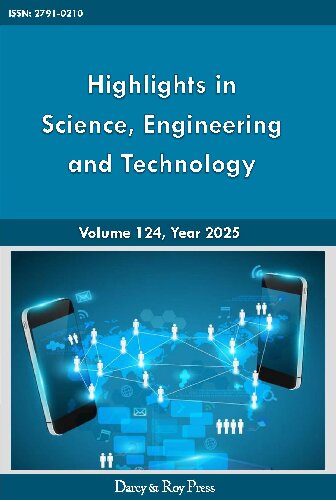The Role of Machine Learning in Healthcare: Predictive Models, Digital Interventions, and Randomized Clinical Trials
DOI:
https://doi.org/10.54097/fvsc1952Keywords:
Machine learning; Healthcare; Randomized clinical trials.Abstract
Machine learning (ML) is transforming healthcare by providing advanced predictive models that help diagnose disease, optimize treatment, and monitor patients. These technologies enable clinicians to make more accurate, data-driven decisions, improve early detection of diseases, optimize personalized treatment plans, and continuously monitor patient health. This review explores the application of various ML models, including Random Forest, Support Vector Machines (SVM), and neural networks, which have shown considerable potential in analyzing large and complex medical data sets to predict patient outcomes and assist in clinical decision making. In addition, the review examines the current landscape of randomized clinical trials (RCTS) that assess the effectiveness of ML interventions in real care Settings. Despite the increasing implementation of ML in healthcare, there remains a significant need for rigorous RCTS to validate the clinical utility and safety of these models. In addition, the review discusses the integration of ML in digital health interventions, such as portable devices and mobile health applications, which are widely used for remote monitoring and chronic disease management. The study presents the potential of ML in healthcare while addressing ethical considerations, including transparency, algorithm accountability and data privacy. The importance of human loop systems, where health professionals work alongside ML models, is also highlighted as a key factor in improving the accuracy, reliability and adoption of these technologies in clinical practice.
Downloads
References
[1] Jason Cottrell.Healthcare is ailing: AI can help, 2020.
[2] Mike Thomas, 23 machine learning in healthcare examples, 2024.
[3] Wiemken T L & Kelley R R. Machine learning in epidemiology and health outcomes research. annual review of public health, 2020,41: 21-36. DOI: https://doi.org/10.1146/annurev-publhealth-040119-094437
[4] Holzinger, A. (2016). Interactive machine learning for health informatics: When do we need the human-in-the-loop? Brain Informatics, 3(2): 119-131. DOI: https://doi.org/10.1007/s40708-016-0042-6
[5] Triantafyllidis A K, Tsanas A. Applications of machine learning in real-life digital health interventions: review of the literature. Journal of medical internet research, 2019,21(4): e12286. DOI: https://doi.org/10.2196/12286
[6] Plana D, Shung D L, Grimshaw A A,et al.Randomized clinical trials of machine learning interventions in health care: A systematic review. JAMA Network Open, 2022,5(9): e2233946. DOI: https://doi.org/10.1001/jamanetworkopen.2022.33946
[7] Burns M N, Begale M, Duffecy J, Gergle D, Karr C J, Giangrande E, & Mohr D C. Harnessing context sensing to develop a mobile intervention for depression. Journal of medical internet research, 2011,13(3): e55. DOI: https://doi.org/10.2196/jmir.1838
[8] Raita Y, Goto T, Faridi M K, Brown D F M., Camargo C A, & Hasegawa K Emergency department triage prediction of clinical outcomes using machine learning models. Critical Care, 2019,23(1): 64. DOI: https://doi.org/10.1186/s13054-019-2351-7
[9] Wang P, Liu X, Berzin T M, Brown J R, Liu P, Zhou C, Lei L, & Zhou J. Effect of a deep-learning computer-aided detection system on adenoma detection during colonoscopy (CADe-DB trial): A double-blind randomised study. The Lancet Gastroenterology & Hepatology, 2020,5(4): 343-351. DOI: https://doi.org/10.1016/S2468-1253(19)30411-X
[10] ZimmermanA, Kalra D. Usefulness of machine learning in COVID-19 for the detection and prognosis of cardiovascular complications, 2020,21: 345-352. DOI: https://doi.org/10.31083/j.rcm.2020.03.120
[11] Alimadadi A, Aryal S, Manandhar I, Munttor P B, Joe B, Cheng X. Artificial intelligence and machine learning to fight COVID-19, 2020,52: 200-202. DOI: https://doi.org/10.1152/physiolgenomics.00029.2020
Downloads
Published
Issue
Section
License
Copyright (c) 2024 Highlights in Science, Engineering and Technology

This work is licensed under a Creative Commons Attribution-NonCommercial 4.0 International License.


















